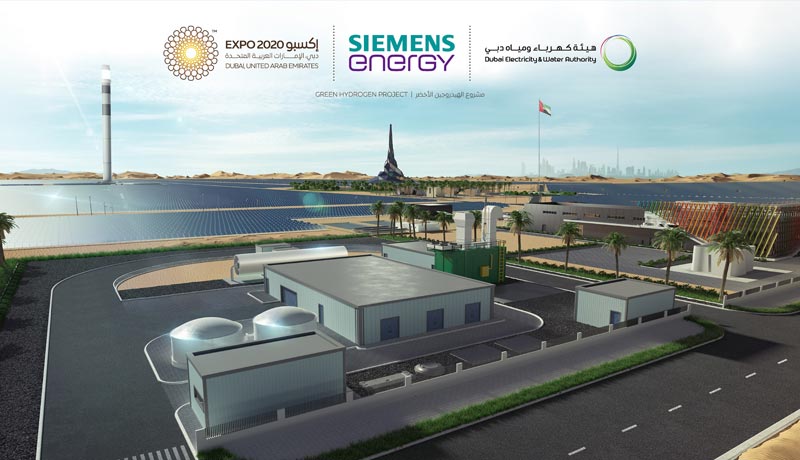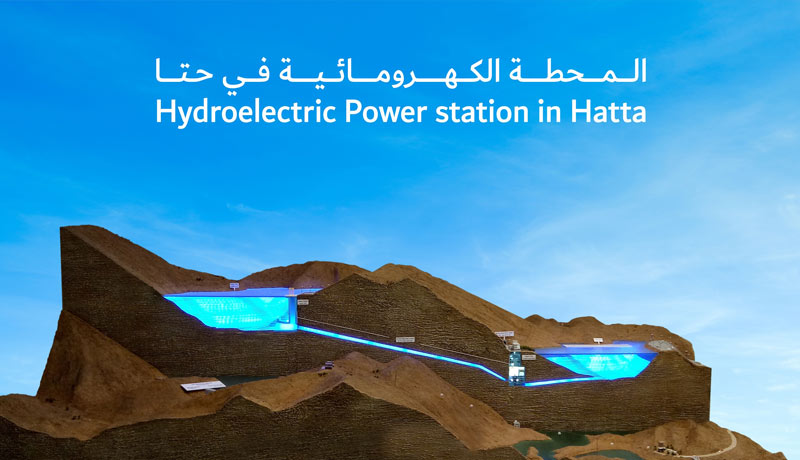21 January 2025, Tue |
6:08 AM

Adopting a green economy and diversifying its energy mix, the UAE global climate action as part of UAE’s great importance to protect the environment and its development policy. It has adopted this approach since 2012 by launching the ‘UAE Green Growth Strategy’, to transform the national economy into a green economy that adopts modern technologies, knowledge, and innovation in addition to reducing carbon emissions.
The UAE has announced that the green and digital economy will become the starting point in the UAE for recovery after the COVID-19 pandemic. The UAE’s wise leadership considers the green economy a tool to control economic growth and direct it towards sustainable development. IT also focuses on protecting the environment, climate, natural resources and improving quality of life. The UAE has won international leadership positions in the competitiveness indicators of the energy sector in general, and clean energy in particular, after seven international references agreed to classify it among the top 10 countries in the world with 18 sector-specific indicators in 2020.
Despite the major challenges and economic slowdown worldwide in 2020, renewable energy surfaced as a real alternative that heralds a better future. The International Renewable Energy Agency (IRENA) stated that production capacity from renewable energy in 2020 reached record levels surpassing past amounts and estimates. Some 260 gigawatts (GW) of renewable energy were added globally, making around a 50% increase compared to the amount added in 2019. The renewable energy share has significantly increased for the second consecutive year, making 80% of the total generation capacity in the last year. Solar power and wind energy share made up 91% of this growth.
Global renewable energy capacity additions in 2020 beat earlier estimates and all previous records despite the economic slowdown last year. According to data released by the International Renewable Energy Agency (IRENA) the world added more than 260 gigawatts (GW) of renewable energy capacity last year, exceeding expansion in 2019 by close to 50%. Renewable energy’s share of all new generating capacity rose considerably for the second year in a row. Approximately 80% of all new electricity capacity added last year was renewable, with solar and wind accounting for 91% of new renewables.
The UAE is a leading country in adopting effective policies such as the economic diversity policy which focuses on a green economy and diversifying energy sources. This is through capacity building in clean and renewable energy, enhancing energy efficiency, transport, and sustainable urban planning. The UAE was also at the forefront of regional countries in climate change policies since the Paris Agreement. In the beginning, it was committed to increasing its clean energy capacity to 24% by 2021. Later, this increased to 50% by 2050.
The UAE adopts and shares an inspiring vision with the rest of the countries worldwide. The efforts combine to achieve the UN Sustainable Development Goals (SDGs) 2030, and to mitigating the effects of climate change and global warming. To achieve this, the UAE has launched several federal and national strategies to consolidate sustainable development and shift to clean energy. Currently, Abu Dhabi and Dubai are making considerable advances in the generation and development of clean energy sources, mainly solar power, in the UAE. Recently, the world’s biggest solar photovoltaic plant of 1,177MW at Sweihan in Abu Dhabi Emirate was commissioned on the Independent Power Producer (IPP) basis.
Dubai Electricity & Water Authority (DEWA) is currently implementing the fourth and fifth phases of the Mohammed bin Rashid Al Maktoum Solar Park. This will be the largest single-site solar park in the world with a planned capacity of 5,000 megawatts (MW) by 2030. Combining CSP and photovoltaic technology based on the IPP model, the fourth phase is the largest single-site CSP project in the world. The 950MW project has the world’s tallest solar power tower measuring 262.44 metres in height and the largest thermal storage capacity in the world of 15 hours, generating power around the clock.
“His Highness Sheikh Mohammed bin Rashid Al Maktoum launched the World Green Economy Organisation (WGEO) in collaboration with the UN Development Programme (UNDP) in 2016. We are striving to achieve this transition through the UAE Energy Strategy 2050, to increase the contribution of clean energy in the total energy mix to 50% by 2050, and the Dubai Clean Energy Strategy 2050 to provide 75% of Dubai’s total power capacity from clean energy sources by 2050. DEWA’s efforts have resulted in a huge reduction of carbon emissions in Dubai. Carbon emissions in Dubai were reduced by 22% in 2019, two years ahead of the target set by the Carbon Abatement Strategy to reduce it by 16% by 2021. Clean energy capacity in Dubai has reached 9% of the energy mix in 2020, surpassing the target of Dubai Clean Energy Strategy 2050 to provide 7% of Dubai’s total power capacity from clean energy sources by 2020,” said HE Saeed Mohammed Al Tayer, MD & CEO of DEWA.

According to the International Energy Agency (IEA), the demand for hydrogen as a power source has grown threefold in the past few decades, and its global production is estimated at 70 million metric tonnes annually. As a result, the costs of producing hydrogen are projected to fall by 64% by 2040. The UAE aims to position itself in the global hydrogen market. It started pilot projects in this area. Dubai Electricity and Water Authority (DEWA) set up the Green Hydrogen project, the first solar-powered green hydrogen production facility in the Middle East and North Africa. DEWA implemented the project at the Mohammed bin Rashid Al Maktoum Solar Park in Dubai. The plant has been built to accommodate future applications and test platforms for the different uses of hydrogen, including potential mobility and industrial uses.
Abu Dhabi Future Energy Company (Masdar) partnered with Abu Dhabi Department of Energy, Etihad Airways, Lufthansa, Khalifa University for Science and Technology, Siemens, and Marubeni Corporation in an initiative to support the development of Abu Dhabi’s green hydrogen economy. They will establish a demonstration plant at Masdar City to explore the development of green hydrogen, sustainable fuels and e-kerosene production for transport, shipping, and aviation.

DEWA is implementing a hydroelectric power station in Hatta, the first of its kind in the Arabian Gulf. It will generate electricity from a reservoir at Hatta Dam. The station’s production capacity is set to reach 250 MW with a storage capacity of 1,500 MW and a life span of 80 years.
As part of DEWA’s space programme, Space-D will build DEWA’s capabilities and train Emirati professionals to use space technologies to enhance its electricity and water networks. The programme will take advantage of Fourth Industrial Revolution technologies such as the Internet of Things (IoT), Artificial Intelligence (AI), and blockchain to exchange information with the help of satellite communications and earth observation technologies. The project features the launch of the main satellite equipped with the latest imaging and satellite communication technologies, which will take place in conjunction with Expo 2020 Dubai. The performance and efficiency of the photovoltaic solar panels at the Mohammed bin Rashid Al Maktoum Solar Park will be monitored using special cameras on the main satellite, which will also help study the impact of weather and climate change on energy infrastructure and supply.
The UAE Ministry of Climate Change and Environment (MOCCAE) will host the MENA Climate Week 2022. The UAE will be hosting this first of its kind event in the Middle East and North Africa from 2—3 March, 2022, on the side-lines of Expo 2020 Dubai. The event intends to increase the momentum on climate action in the region.
The MENA Climate Week 2022 will convene leaders from the public and private sectors and society to discuss the serious threat of climate change, and collaborate on swift, bold actions to address this challenge. The event offers a wealth of opportunities for collaboration and demonstrates ground-breaking technologies that can help the region adapt to climate change.
Stakeholders have a unique opportunity to reflect and revise their country’s climate action plans to effectively address societal, environmental, and economic impacts. Participants will also be able to follow up on the discussions raised during the 26th Climate Change Conference (COP26) in November 2021 in Glasgow in the United Kingdom.